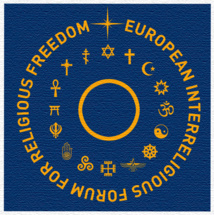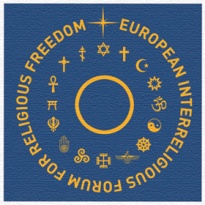
Freedom of Conscience: Tensions between Church, State and Religious Minorities in Family Issues
Side event 23 April 2013 – Parliamentary Assembly of the Council of Europe
Vital information on human rights standards provided for the Salles report on ‘Sectarian Influence on Minors’
On 23 April 2013, Mr. Pieter Omtzigt (Netherland, member of PACE, EPP) co-sponsored an event with Lord Dundee (UK, member of PACE, EDG). The European Interreligious Forum for Religious Freedom (EIFRF) helped to organise the event during the Plenary Session of the Parliamentary Assembly of the Council of Europe (PACE). The main reason for the meeting was to provide information crucial to the discussion of a report in progress on “Sectarian Influence on Minors”, with Mr. Rudy Salles as rapporteur (France, member of the PACE). Mr. Salles, whilst invited to participate, was not able to attend.
Mr. Omtzigt, as the moderator, introduced the panelists by explaining that religious freedom issues were of significant concern in many countries of Europe. He spoke of the unfortunate developments in Hungary with regards to their recent law on the registration of religious groups and also his own country Netherlands, where there were religious tensions. He pointed out that whilst some approaches enabled religious communities to integrate and work together, others had proven to be unworkable. In this last category he identified the widely criticized French approach of isolating and targeting minority religious and made the point that it would not be advisable to export this to other European countries.
The attendees were told that this meeting was to be an open debate and they were free to discuss any points during the meeting. Mr. Omtzigt then gave the floor to Professor Marco Ventura (K.U. Leuven).
Mr. Ventura highlighted a number of key points that have been established in European jurisprudence and which closely relate to the report of Mr. Salles. These are as follows:
1. There is an obligation of neutrality and impartiality on the part of the state.
2. The State has no competence or legitimacy in assessing religious beliefs or even the way these beliefs are expressed.
3. Religious discrimination is not permissible. Religion cannot be used as grounds to make a decision in abstracto simply on the basis of anothers’ belief system.
4. State distinction between religions and sects; State sponsored “cult prevention” activities through labeling, listing and targeting of individuals and groups based on a supposed ‘sectarian’ membership are incompatible with the European Convention on Human Rights.
He underlined that governments cannot legitimately legislate or make any determination as to the ‘validity’ of a religion or classify religions as “good” or “bad”, including using discriminatory concepts such as “cults” or “sects” Any legislation which attempts to discriminate between citizens based solely on their religious beliefs, or between religions based on any criteria would ultimately be condemned by the ECtHR. He also made it clear that when there are issues with regards to children and the family unit, the right of parents to educate their children in their own faith, whatever that may be, must be respected. The only restriction possible would be in the case where there wasan actual proven harm to the child, but this could not include any theoretical position or a priori determination based on the parent’s belief system. Dr. Petar Gramatikov, a Doctor of Theology of the Universal Orthodox Church, working for the Bulgarian government on religious registration issues, explained the situation in Bulgaria with regards to religious minorities. He explained the attitude of the Soviet regime against religions and the following democratisation of the country, pointing out that the Bulgarian authorities started to attack minority religions as "sects", whether they were Muslim minorities, Christian minorities or new religious movements and that the country regressed in the direction of an authoritarian regime in this regard and did not favour religious diversity. He stressed how harmful this has been for citizens belonging to minority faiths and consequently how it is vital for a spirit of tolerance and diversity to be promoted in order to have a healthy society that would be a vehicle for human development.
The last speaker was Maître Christian Paturel, a French lawyer and also a member of the Jehovah Witnesses. Mr. Paturel, has already won a landmark case against France before the ECtHR after one of his books, critical of the French anti-religious movement, had been banned by the French courts. After eventually taking this to Strasbourg the French court decisions were struck down, the ECtHR judges being quite critical of the national judicial process. The book is now available in France. Maitre Paturel also told the story of his own wife. She was employed by the French Administration and had an exemplary record in the field of Child Care for many years but after an anti-religious group (funded by the French government) informed her State employer that she was a member of the Jehovah Witnesses she was dismissed. On taking the case to court the State was ordered to reinstate her, only for her to be dismissed again on the same grounds. This has happened 3 times and after the fourth dismissal a criminal case was filed against the State. The case is still ongoing.
Participants were able to ask several questions to the panelists in order to clarify various points. Further details of the forum will be available on request.
EIFRF is an unincorporated forum whose board is composed of religious leaders from wide range of different faiths and various countries, united to promote freedom of religion and beliefs, religious tolerance and knowledge of religions throughout Europe. For more information go to www.eifrf.org
Email: eiforumrf@gmail.com
Side event 23 April 2013 – Parliamentary Assembly of the Council of Europe
Vital information on human rights standards provided for the Salles report on ‘Sectarian Influence on Minors’
On 23 April 2013, Mr. Pieter Omtzigt (Netherland, member of PACE, EPP) co-sponsored an event with Lord Dundee (UK, member of PACE, EDG). The European Interreligious Forum for Religious Freedom (EIFRF) helped to organise the event during the Plenary Session of the Parliamentary Assembly of the Council of Europe (PACE). The main reason for the meeting was to provide information crucial to the discussion of a report in progress on “Sectarian Influence on Minors”, with Mr. Rudy Salles as rapporteur (France, member of the PACE). Mr. Salles, whilst invited to participate, was not able to attend.
Mr. Omtzigt, as the moderator, introduced the panelists by explaining that religious freedom issues were of significant concern in many countries of Europe. He spoke of the unfortunate developments in Hungary with regards to their recent law on the registration of religious groups and also his own country Netherlands, where there were religious tensions. He pointed out that whilst some approaches enabled religious communities to integrate and work together, others had proven to be unworkable. In this last category he identified the widely criticized French approach of isolating and targeting minority religious and made the point that it would not be advisable to export this to other European countries.
The attendees were told that this meeting was to be an open debate and they were free to discuss any points during the meeting. Mr. Omtzigt then gave the floor to Professor Marco Ventura (K.U. Leuven).
Mr. Ventura highlighted a number of key points that have been established in European jurisprudence and which closely relate to the report of Mr. Salles. These are as follows:
1. There is an obligation of neutrality and impartiality on the part of the state.
2. The State has no competence or legitimacy in assessing religious beliefs or even the way these beliefs are expressed.
3. Religious discrimination is not permissible. Religion cannot be used as grounds to make a decision in abstracto simply on the basis of anothers’ belief system.
4. State distinction between religions and sects; State sponsored “cult prevention” activities through labeling, listing and targeting of individuals and groups based on a supposed ‘sectarian’ membership are incompatible with the European Convention on Human Rights.
He underlined that governments cannot legitimately legislate or make any determination as to the ‘validity’ of a religion or classify religions as “good” or “bad”, including using discriminatory concepts such as “cults” or “sects” Any legislation which attempts to discriminate between citizens based solely on their religious beliefs, or between religions based on any criteria would ultimately be condemned by the ECtHR. He also made it clear that when there are issues with regards to children and the family unit, the right of parents to educate their children in their own faith, whatever that may be, must be respected. The only restriction possible would be in the case where there wasan actual proven harm to the child, but this could not include any theoretical position or a priori determination based on the parent’s belief system. Dr. Petar Gramatikov, a Doctor of Theology of the Universal Orthodox Church, working for the Bulgarian government on religious registration issues, explained the situation in Bulgaria with regards to religious minorities. He explained the attitude of the Soviet regime against religions and the following democratisation of the country, pointing out that the Bulgarian authorities started to attack minority religions as "sects", whether they were Muslim minorities, Christian minorities or new religious movements and that the country regressed in the direction of an authoritarian regime in this regard and did not favour religious diversity. He stressed how harmful this has been for citizens belonging to minority faiths and consequently how it is vital for a spirit of tolerance and diversity to be promoted in order to have a healthy society that would be a vehicle for human development.
The last speaker was Maître Christian Paturel, a French lawyer and also a member of the Jehovah Witnesses. Mr. Paturel, has already won a landmark case against France before the ECtHR after one of his books, critical of the French anti-religious movement, had been banned by the French courts. After eventually taking this to Strasbourg the French court decisions were struck down, the ECtHR judges being quite critical of the national judicial process. The book is now available in France. Maitre Paturel also told the story of his own wife. She was employed by the French Administration and had an exemplary record in the field of Child Care for many years but after an anti-religious group (funded by the French government) informed her State employer that she was a member of the Jehovah Witnesses she was dismissed. On taking the case to court the State was ordered to reinstate her, only for her to be dismissed again on the same grounds. This has happened 3 times and after the fourth dismissal a criminal case was filed against the State. The case is still ongoing.
Participants were able to ask several questions to the panelists in order to clarify various points. Further details of the forum will be available on request.
EIFRF is an unincorporated forum whose board is composed of religious leaders from wide range of different faiths and various countries, united to promote freedom of religion and beliefs, religious tolerance and knowledge of religions throughout Europe. For more information go to www.eifrf.org
Email: eiforumrf@gmail.com







 FoRB Roundtable's online meeting with ODIHR on 11 December
FoRB Roundtable's online meeting with ODIHR on 11 December